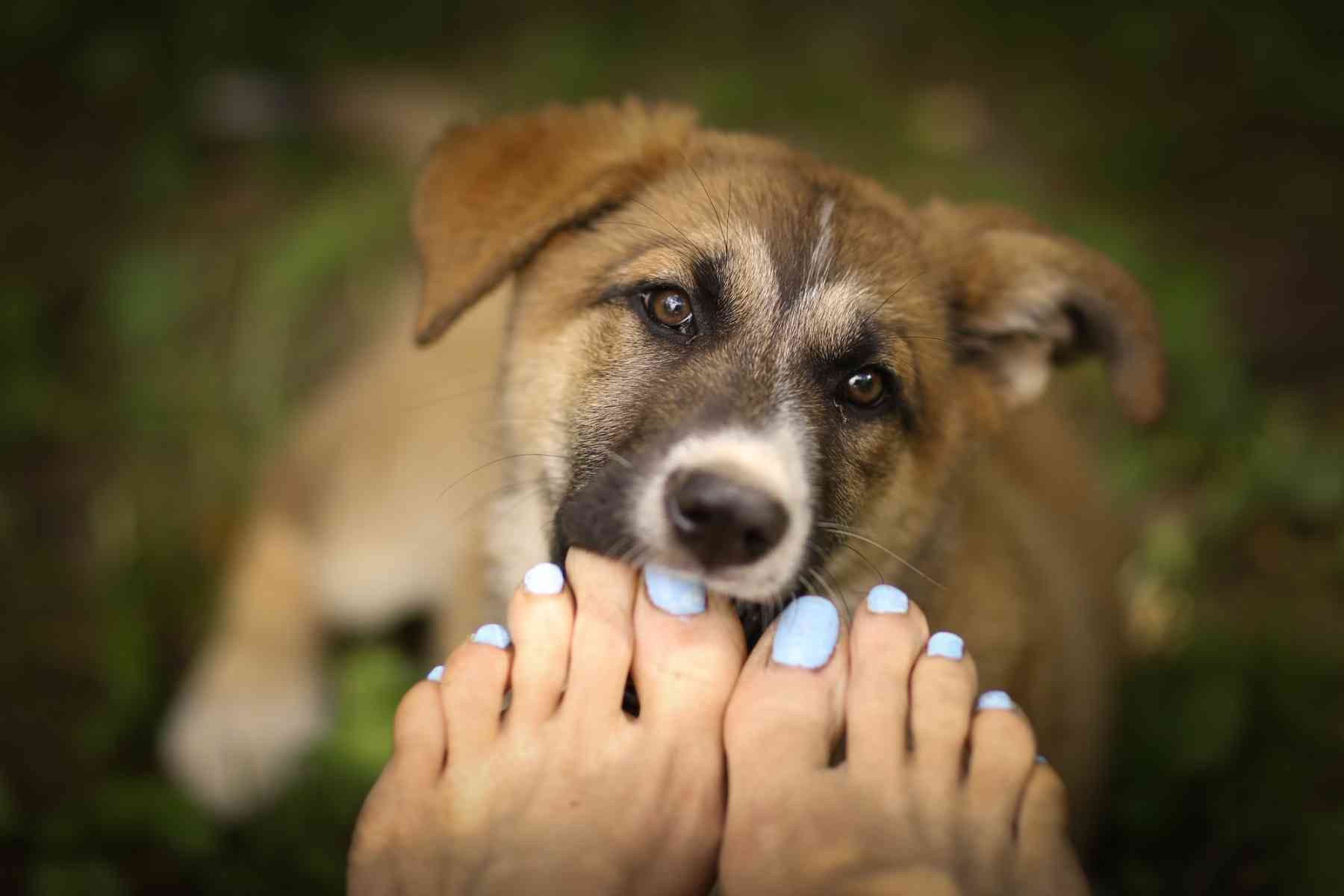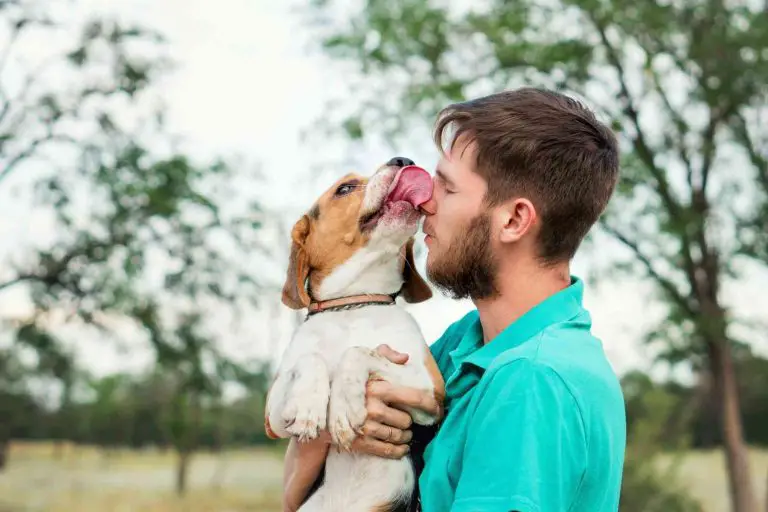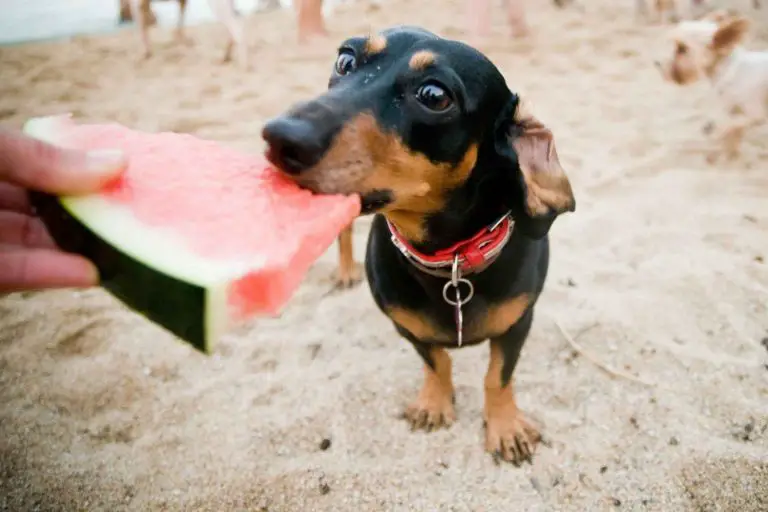Why Does My Dog Bite My Feet? – My Puppy Is Biting My Feet!

Dogs bite at their owners’ feet for a variety of reasons, including play and aggression. They may do so from a desire to get your attention, or because they are teething. Whatever the reason, you need to stop them from doing it.
We’re going to explore what causes puppies to bite and how you can discourage them from doing so. Being consistent in training your puppy out of biting is very important, and we’re going to look at how to do so today.
Reason One: It Is Seeking Attention
One of the commonest reasons for puppies biting at your feet is that the dog wants your attention. Puppies often use their teeth to play with their littermates, and if your puppy is keen to play, it might use its teeth to try and get you to pay attention to it.
It is very common for puppies to bite in this way, and it’s important not to show them that biting gets them the attention that they seek. If your puppy bites your feet, you should communicate in a way that it understands, as its littermates do.
This means you should utter a sharp yelp, and then move away from your dog. Ignore your dog for about a minute. When it has stopped biting at you, you can play with it again. This shows your dog that you will not respond to biting, but still fulfills its requirement for play and love.
Reason Two: It Has A Herding Instinct
Many dogs are born with herding instincts, and if this is the case with the breed you have taken on, it is much more likely to try biting at your feet. You should try to satisfy this instinct in other ways, giving your dog toys and teething chews.
You should again ignore any biting or nipping, so that your dog does not learn this gets a reaction. Do not run away from your dog; this will only further engage its herding instinct. Try to avoid jerking your feet back or moving away from the dog. This will only engage the herding instinct and encourage it to keep trying.
If your dog is really persistent, you can sit down and use a cushion to block the dog from you physically. Simply ignoring the dog should help to teach it that you are not for herding.
Dogs that commonly have a herding instinct are Border Collies, Bernese Mountain dogs, Corgis, Daschunds, and Sheepdogs. Other dogs can have herding instincts too.
Reason Three: Teething
Sometimes, puppies bite because they are teething. Just like human babies, they can suffer from pain in their teeth and gums when their new teeth are cutting through, and it’s important to recognize this.
Most puppies teethe at around three weeks old, and this can usually go on until they are around six weeks old. You should give your puppy plenty of things that it can chew on to relieve the pressure in its mouth, and be understanding of its determination to chew.
You may notice a bit of blood as your puppy loses its deciduous teeth, but this is nothing to worry about. It’s perfectly normal, and you simply need to clean the toys and make sure they are safe to keep using.
Some breeds are particularly “mouthy,” such as retrievers. It’s important to recognize this before you take on one of these breeds, so that you know what to expect.
You should still not allow your dog to tree your feet as a chew toy, however. While biting and mouthing at this time is common, and your puppy may try to continue any learned behaviors even after it has stopped teething, you need to firmly show your puppy that it cannot bite your feet.
Redirect its attention to chew toys, but do not yell at it or punish it. Simply yelp like a puppy and move away from it. Ignore it for a minute, and then redirect its attention to the chew toys.
Reason Four: Aggression
Sometimes, puppies bite because they want to assert authority and dominance over you. This is part of their attempt to find their place in the pack, and it is behavior that must be nipped in the bud.
You can use many techniques to stop your puppy from trying to be dominant over you, and it may be worth engaging a professional trainer if you are struggling with really aggressive behavior.
It can be challenging to tell the difference between aggressive behavior and playful behavior, but if you watch carefully, you should be able to distinguish between them. The biting will usually be less painful when the dog is playing, and the dog’s posture will be less tense.
Aggressive dogs are usually stiff, tense, and angry. The bites can be serious and hard. If you get bitten by your dog and it breaks the skin, you should get the injury checked at a hospital.
Reason Five: Play
As stated, dogs often bite because they are playing. It is very important not to encourage this, even if it is only gentle and seems harmless. As your dog grows, it must not continue to bite, because it could become very dangerous as the dog increases in size and strength.
If you run away, giggle, shriek, or even yell as a result of your dog biting your ankles, it is likely to see these things as signs that you want to play, and biting is a fun game. Never encourage your dog to bite, or reward it for biting.
Instead, you must respond calmly, with a yelp or a noise to indicate that it hurts. Ignore your dog for a minute, and then resume play as normal.
If your dog is persistent in biting you and the ignore technique does not seem to be getting results, you should put your dog on a time out. When over-excited, your dog may not respond even to clear signs that it is hurting you, and therefore you need the dog to calm down.
You must not play with your dog when it bites at your feet. Don’t jerk back, wriggle around, or lean into your dog. Stay as still as you can so that you are not seen as exciting or engaging, and wait for the dog to stop trying to bite you.
If your dog is a keen biter, you should make sure that you don’t encourage this in other forms of play. Don’t wrestle with your dog, or allow it to pull on your clothes or limbs. Don’t let it put your hand in its mouth or tug you around.
Instead, find games that involve less physical contact, and play those instead. Tug of war can be a great one to relieve your dog’s desire to yank something, without that something being you. Get your dog to focus on the tug toy, rather than you or your clothes.
Conclusion
Biting at feet is very common among dogs, but it is important to discourage this behavior. It may not hurt when your puppy does it, but you might find it’s rather different once your dog is an adult. Teach your dog to use other outlets for its feelings, and supply it with chew toys.






